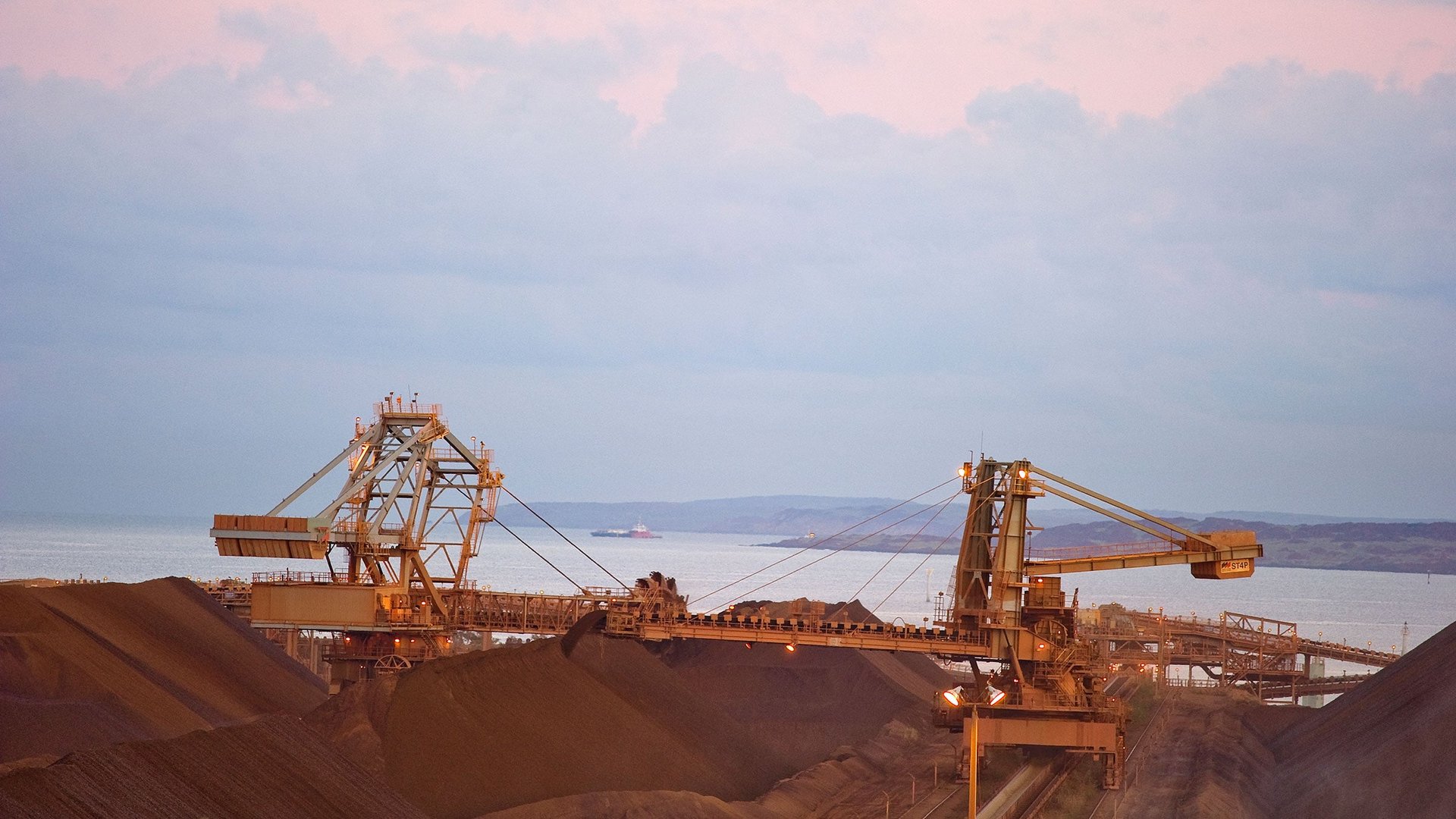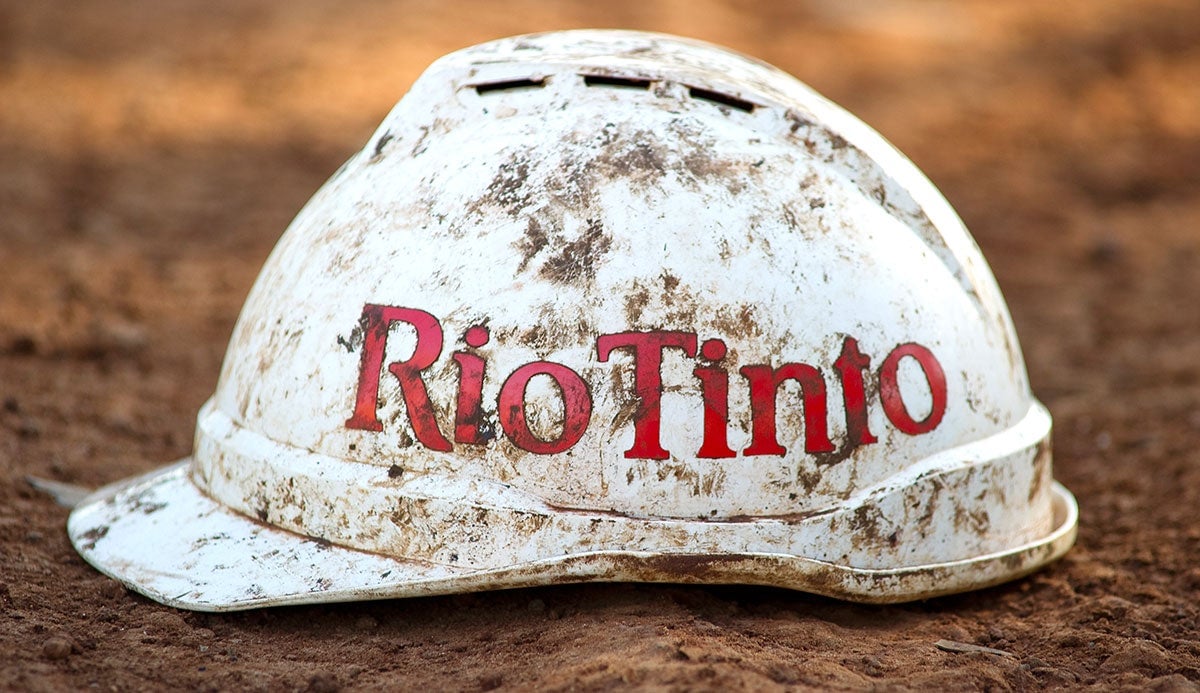If China doesn’t need as much steel, why is mining giant Rio Tinto still going strong?
BHP Billiton CEO Marius Kloppers has turned gloomy. In a speech, he said the company will halt coal mine expansion in Australia. He added it was unlikely that record-high commodities prices, caused by the rapid rise of China, would occur again in the next decade. And he forecast demand for iron ore would grow by 650 million tonnes in the next 10 years, compared to 800 million tonnes in the previous decade.


BHP Billiton CEO Marius Kloppers has turned gloomy. In a speech, he said the company will halt coal mine expansion in Australia. He added it was unlikely that record-high commodities prices, caused by the rapid rise of China, would occur again in the next decade. And he forecast demand for iron ore would grow by 650 million tonnes in the next 10 years, compared to 800 million tonnes in the previous decade.
But Rio Tinto, a rival Australian mining giant, shows no sign of slowing down amid the China slowdown. Rio dug a record amount of iron ore at its sites in Western Australia’s Pilbara region in the three months to September, it said in its latest operations review. “Our business is resilient and our operations are performing strongly, reflecting our consistent strategy of running large, long-life, cost-competitive operations,” chief executive Tom Albanese was quoted as saying in the media release accompanying that review.
Rio believes it can fill a yawning gap in the Chinese iron ore market as domestic producers become unprofitable and exit. In an Oct. 9 speech (pdf titled ‘media release’) Albanese presented an intriguing reason why Rio should keep on trucking. Chinese iron ore producers have “become unprofitable,” he said in the speech, signaling that Rio is a well-run, efficient company while Chinese players are not. Rio also ”sees evidence on the ground that a large proportion” of some 100 million tonnes of unprofitable Chinese production has been curtailed. If these claims are right, there is a chance Rio could fill a gap in the Chinese iron ore market left by badly-run domestic miners exiting.

Rio has a big advantage here. It can cut jobs to adjust for falling demand, and is doing so. Its domestic Chinese competitors probably cannot. In China large employers, particularly those where the government holds a majority stake, are often forced by officials to keep unneeded workers on the payroll. China has no welfare state to speak of. So, as this paper from Taiwanese academic research institution Academia Sinica outlines (pdf, page 4) state owed enterprises are “subject to the explicit or implicit command of the state to help fulfil government policy goals.” Private sector firms are also not immune to such pressure. Back in 2009, Asia Aluminum, an aluminum producer based in Southern China, which did not have government shareholders, was prevented by local politicians from selling its ailing operations to a potential Norwegian buyer. That was presumably because Asia Aluminum’s new owner may have cut headcount to save the business (which its Chinese management later bought back from the liquidators for a bargain price (pdf, pages 4-6).
But Rio is dangerously assuming the Beijing government will not move to protect Chinese firms, however inefficient they might be, from the kind of slick, Western competition that Albanese assumes is a good thing. China is a centrally planned economy. In his Oct. 9 comments, Albanese spoke as it if were a free market. If China’s shortfall in domestic iron ore production gets too big, the economic planners may seek to do something about this. Beijing has a record of putting domestic interests first by staunchly protecting them from free market forces. Foreign banks, for example, often complain (pdf, page 2, page 12-14) that the Chinese government hands out preferential treatment to domestic banks and limits access to international rivals seeking a bigger toehold in this potentially lucrative market.
And Chinese authorities have started lashing out against foreign miners. Last month, it was reported that Chinese authorities may disallow Brazilian iron ore giant Vale from sending its new fleet of supersized ships to China’s second largest port for two to three years. Vale developed the giant Valemax ships to save costs transporting goods to the Asia Pacific region. Its attempts to send them to China have been met with staunch resistance by Chinese shipping firms, including many which are state owned. Yet back in December, when Chinese commodities demand was higher, one Valemax vessel was allowed (paywall) into the northern Chinese port of Dalian.
So BHP’s outlook seems more realistic than Rio’s. The thrust of the talk Kloppers gave today at the Brisbane Mining Club is that China’s urbanization will not continue at a rapid pace forever. He pointed out that 200 million people have moved from China’s countryside to its cities in the last decade, “increasing their demand for the commodities required to provide infrastructure like roads, buildings, train-lines and so on.” But China’s steel consumption will now grow at “a slower rate as steel intensity of GDP declines”.
Economic slowdown aside, China also wants to stop gobbling steel. Kloppers was not just referring to China’s growth slowdown, but also to Beijin’s hopes it can rebalance its economy so growth relies less on infrastructure investment and more on services and domestic consumption. As it illustrated in its latest Five Year Plan, the Chinese government would rather have its people selling insurance or holidays out of air conditioned offices than digging roads under polluted skies. And that, Kloppers continued, means “demand growth at more predictable and sustainable levels and more moderated pricing.” That appears a realistic forecast of miners’ business in China going forward. So Rio’s argument that it should continue digging to fill a gap left by inefficient Chinese suppliers seems fanciful compared to BHP’s more sober approach.